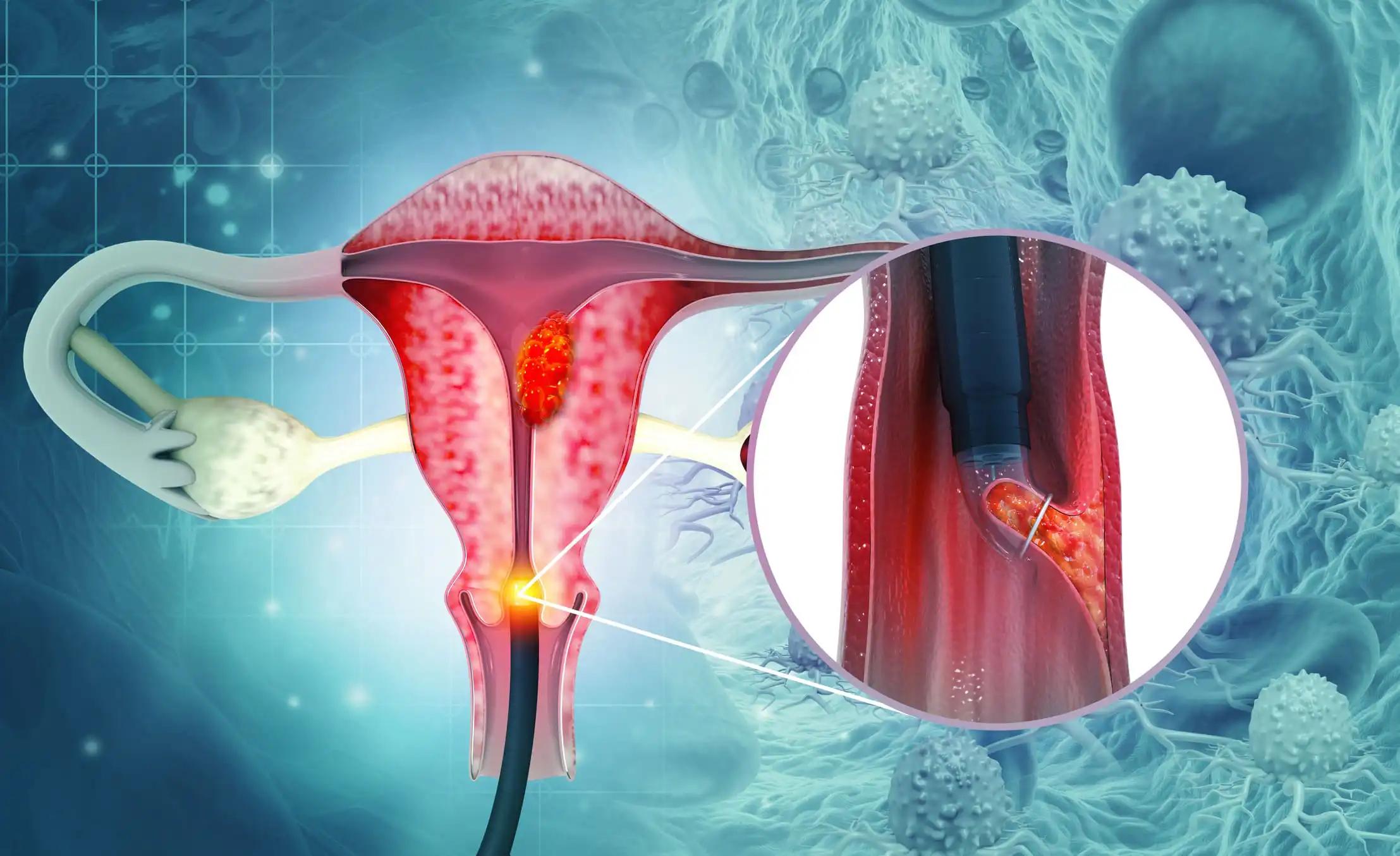KEY TAKEAWAYS
- The observational study aimed to investigate the prognostic potential of ctHPV-DNA in monitoring treatment response and predicting recurrence in pts with CC.
- Researchers noted a strong correlation between ctHPV-DNA and tissue HPV testing, affirming ctHPV-DNA’s potential as a valuable prognostic tool.
Persistent infection with high-risk HPV is a known cause of cervical cancer (CC). Minimal residual disease (MRD) is increasingly well recognized in guiding adjuvant therapy for colorectal and lung cancer (LC), and exploring its role in CC is essential for improving patient outcomes.
Hao Wen and the team aimed to investigate the prognostic potential of circulating tumor HPV DNA (ctHPV-DNA) in monitoring treatment response and predicting recurrence in CC.
They performed an inclusive analysis in a prospective, observational clinical study (NCT05602831) involving patients (pts) undergoing radical radiotherapy or surgery. Blood samples were collected for HPV digital droplet PCR (ddPCR) testing, targeting HPV16/18/33/52/58, at baseline, post-surgery, and the day after radical radiotherapy, at 1 and 3 months to assess HPV clearance in relation to treatment efficacy and prognosis.
About 43 pts were enrolled from August 2022 to March 2024, with 27 completing sequential blood collections and 23 undergoing baseline tissue and ctHPV-DNA testing. Among the 23 pts, all had squamous cervical cancer (SCC), averaging 55 years old, with 82.6% (19/23) at stage III. The vast majority (95.7%) received radical radiotherapy, achieving a complete remission rate of 73.9%. Concordance between baseline ctHPV-DNA and tissue HPV testing was 100%. Among the 18 tissue-confirmed HPV-positive pts analyzed for ctHPV-DNA dynamic surveillance, HPV types included 13 HPV16+, 3 HPV58+, 1 HPV52+, and 1 HPV18+.
A positive correlation was observed between baseline tissue HPV copy number and ctHPV-DNA copy number (r=0.4718, P=0.0615). Patients with stage IIIC exhibited higher ctHPV-DNA copy numbers compared to those with IIIB. Following radiation, 4 pts (22.22%) tested positive for ctHPV-DNA, with 2 experiencing relapse. Detailed case studies underscored the prognostic value of ctHPV-DNA, detecting recurrence 105 days ahead of imaging and 90 days ahead of tumor marker SCC-Ag elevation.
The study concluded a strong correlation between ctHPV-DNA and tissue HPV testing, positioning ctHPV-DNA as a valuable prognostic tool for CC. Increased enrollment and extended follow-up will validate these promising results further.
The trial was sponsored by the Fudan University.
Source: https://cslide.ctimeetingtech.com/gynae24hybrid/attendee/confcal/show/session/3
Clinical Trial: https://clinicaltrials.gov/study/NCT05602831
Wen H, Zhu J, Ke G, et al. (2024). “Exploring the prognostic value of circulating tumor HPV DNA in cervical cancer.” Presented at ESMO-GC 2024 (Abstract 12P).



